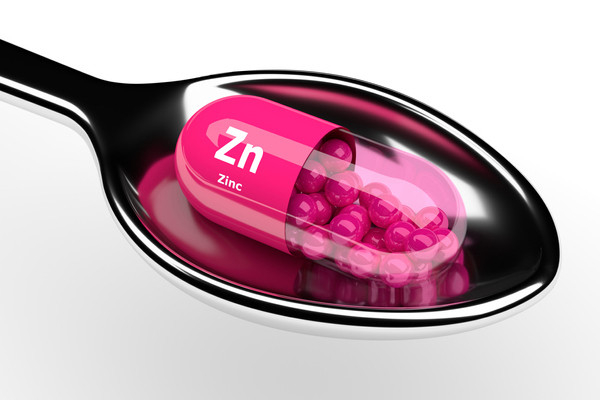Time to stock up on zinc?

As if stubbornly high rates of COVID-19 aren’t giving us enough to worry about, welcome to cold and flu season!
Yes, colds and influenza, two well-known upper respiratory infections, will soon be on the rise. Last year we saw remarkably low rates of flu. Many experts don’t think we’ll be so lucky this year.
Think zinc?
A new analysis reviewing available research suggests that over-the-counter zinc supplements could be one way to make cold and flu season a bit easier. Of course, this isn’t the first study to look into zinc as an antiviral remedy, including for COVID-19. But the results of past research have been mixed at best: some studies find modest benefit, others find no benefit, and the quality of the research has been low. Also, some people experience bothersome side effects from zinc, such as upset stomach, nausea, and in some cases, loss of the sense of smell.
What did the study say?
Published in November 2021 in BMJ Open, the study looks at zinc for preventing or treating colds and flulike illness. The researchers reviewed more than 1,300 previous studies and narrowed the analysis down to 28 well-designed trials, which included more than 5,000 study subjects. Here’s what they found:
For preventing colds and flu-like illness:
- Compared with placebo, zinc supplements or nasal spray zinc are associated with fewer upper respiratory infections. The estimated effect was modest: about one infection was prevented for every 20 people using zinc. The strength of the evidence for these findings is considered low.
- A few studies suggest preventive effects were largest for reducing severe symptoms, such as fever and flulike illness. It’s worth noting that the studies didn’t confirm whether participants had flu infections.
- Small studies of intentional exposure to cold virus found that zinc did not prevent colds.
For treating colds and flulike illness:
- Compared with placebo, those who took zinc had symptoms go away about two days sooner. The study estimated that of 100 people with upper respiratory infections, an extra 19 people would have completely recovered by day seven due to zinc treatment. The strength of the evidence for these findings is considered low.
- Some measures of symptom severity were lower for those treated with zinc (versus placebo): on day three of the infection, those taking zinc had milder symptoms. Further, there was an 87% lower risk of severe symptoms among those taking zinc. However, the daily average symptom severity was similar between those taking zinc and those taking placebo. The data quality and certainty of these findings were low to moderate.
What else to consider before stocking up on zinc
While these findings suggest promise in the ability of zinc to prevent or temper cold and flulike illness, here are other points to consider:
- Side effects. Side effects occurred more often in those taking zinc (versus placebo), including nausea and mouth or nose irritation. Fortunately, none were serious. But they might be bothersome enough for some people to stop using zinc.
- Cost. Zinc supplements are generally inexpensive. A daily dose of zinc lozenges for a month may cost less than $2/month (though I also found certain brands for sale online for as much as $75/month).
- Zinc deficiency. Study subjects either had normal zinc levels or were otherwise considered unlikely to be zinc deficient. There’s a big difference between taking a zinc supplement to prevent or treat respiratory infections and taking it because your body lacks enough of the mineral. Zinc deficiency is more likely among people with poor nutrition or digestive conditions that interfere with mineral absorption; they require supplementation to avoid serious complications such as impaired immune function and poor wound healing.
- Different doses or types. Additional research is needed to determine the best way to take zinc.
- COVID-19. None of the studies in this analysis assessed the impact of zinc supplements on SARS-CoV-2, so these conclusions do not apply to COVID-19.
You know the drill
Perhaps this new analysis will convince you to take zinc this winter. Or perhaps you’re still skeptical. Either way, don’t forget tried and true preventive measures and treatments during cold and flu season, including these:
- Get a flu shot
- Wash your hands frequently
- Avoid contact, maintain physical distance, and wear a mask around people who are sick
- Get plenty of sleep
- Choose a healthy diet.
If you do get sick:
- Stay home if possible
- Wear a mask if you can’t avoid contact with others
- Drink plenty of fluids
- Take over-the-counter cold and flu remedies to reduce symptoms
- Contact your doctor if you have symptoms of the flu; early treatment can shorten the duration of the illness. In addition, other conditions (especially COVID-19) should be ruled out.
Many of the measures recommended for cold and flu season overlap with those recommended to prevent or treat COVID-19.
The bottom line
Colds and flulike illnesses afflict millions every winter. You might feel as though it’s inevitable you’ll be among them. But you may be able to spare yourself the misery by following some simple, safe, and common-sense measures. As evidence mounts in its favor, perhaps these measures should include zinc.
As for me, I remain steadfastly on the fence. But it wouldn’t take much — perhaps one more large, well-designed, randomized controlled trial — to push me onto the zinc bandwagon.






